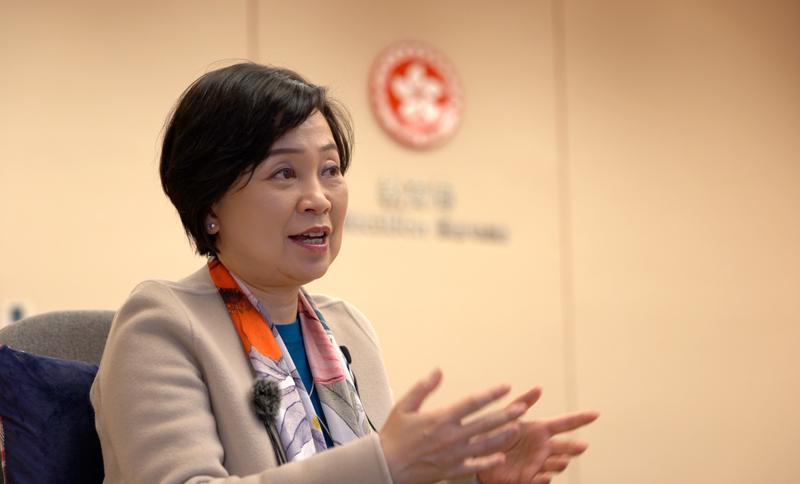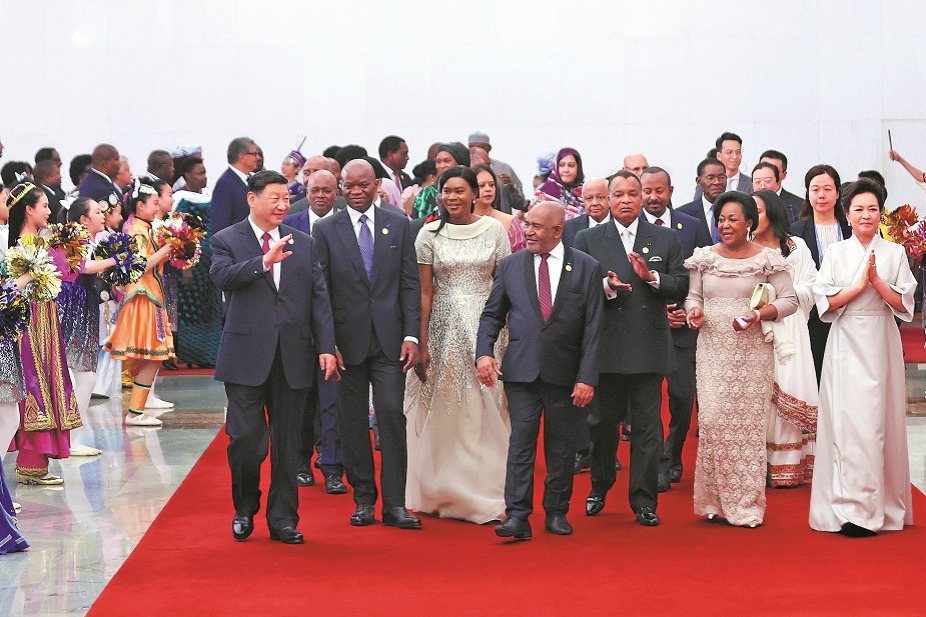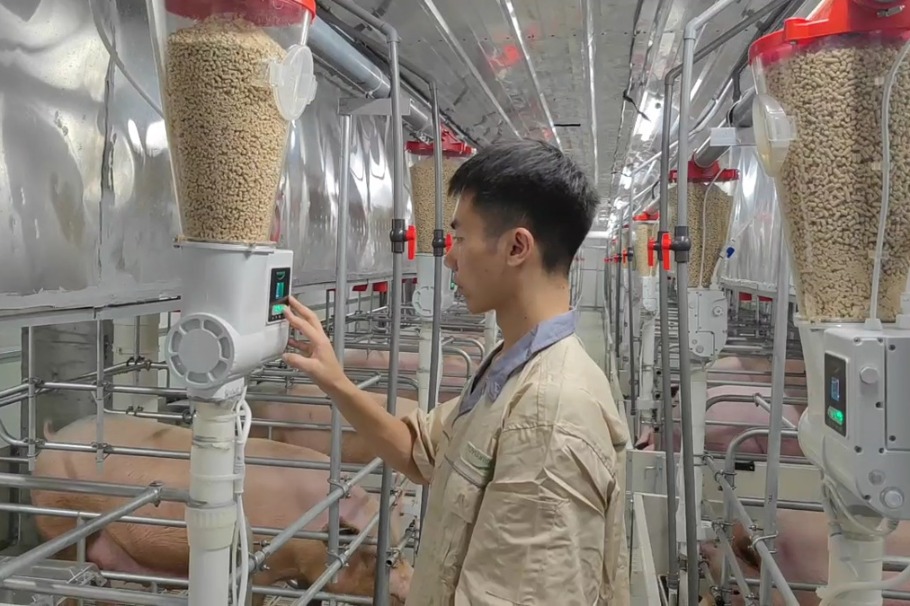National element a 'priority' in tweaking HK's education system

Steps are being implemented to raise a generation of patriots who can carry forward the principle of 'one country, two systems'. Oasis Hu reports from Hong Kong.

Hong Kong’s education chief is leaving no stone unturned in her efforts to bring the “national” concept into the city’s education system, starting with the youngest students, by recalibrating the curriculum and instituting more rituals for them to appreciate the country, as well as engaging parents in the process.
In an exclusive interview with China Daily, Christine Choi Yuk-lin, secretary for education for the Hong Kong Special Administrative Region, said national education is high on her agenda during her 5-year term. This will help realize the lofty goals set by President Xi Jinping during his inspection tour of the SAR in July to mark the 25th anniversary of the city’s return to the motherland.
“We aim to raise a generation of patriots who can carry forward the cause of ‘one country, two systems’,” said Choi.
Her pledge resonates with Xi’s remarks that Hong Kong’s governing power should be kept firmly in the hands of patriots — a key factor in guaranteeing the city’s continued stability and prosperity.
The local electoral system was revamped to implement the principle of “patriots administering Hong Kong” following the 2019 social unrest, which stoked criticisms that the city’s education system lacked national education elements. Hong Kong has since rolled out various measures to rectify these problems.
Greater efforts have been made to improve students’ understanding of the country, such as the holding of regular flag-raising ceremonies, particularly on important days, having discussions about the Constitution and Hong Kong’s Basic Law, strengthening national security education, and incorporating elements of Chinese history and culture into the curriculum.
Since Jan 1, 2022, all primary and secondary schools must conduct national flag-raising ceremonies on significant occasions, such as the HKSAR’s establishment anniversary on July 1 and National Day on Oct 1.
Choi said all these efforts have paid off, with children from kindergartens and primary schools now rising to sing the national anthem whenever they hear it broadcast on television.
“These rituals are necessary and have to be further promoted in schools,” she said. “As a result, students can better understand Hong Kong’s close bonds with the motherland from a historical perspective. These ceremonies also remind our young people of the symbolic significance of the country’s five-star red flag and the national anthem, as well as the hardships the Chinese nation has gone through.”
“We’ve spent years doubling down on our efforts to cultivate students’ affection for the country, and we’ve seen obvious improvements with students having acquired a better understanding of the nation,” said Choi. “But, we won’t stop here.”
Another key development has been the introduction of new guidelines on the professional conduct of teachers.
These guidelines were published by the Education Bureau at the end of 2022. Many teachers were involved in the 2019 social unrest and encouraged students to join the street protests that brought Hong Kong to a virtual halt. With the new guidelines in place, “red lines” that teachers must not cross have been established, and various activities they must not engage in have been listed.
Teachers are prohibited from instilling misleading or incorrect concepts in students. They are also required to abide by the law, keep campuses safe, and provide a healthy and harmonious learning environment for students, said Choi.





































